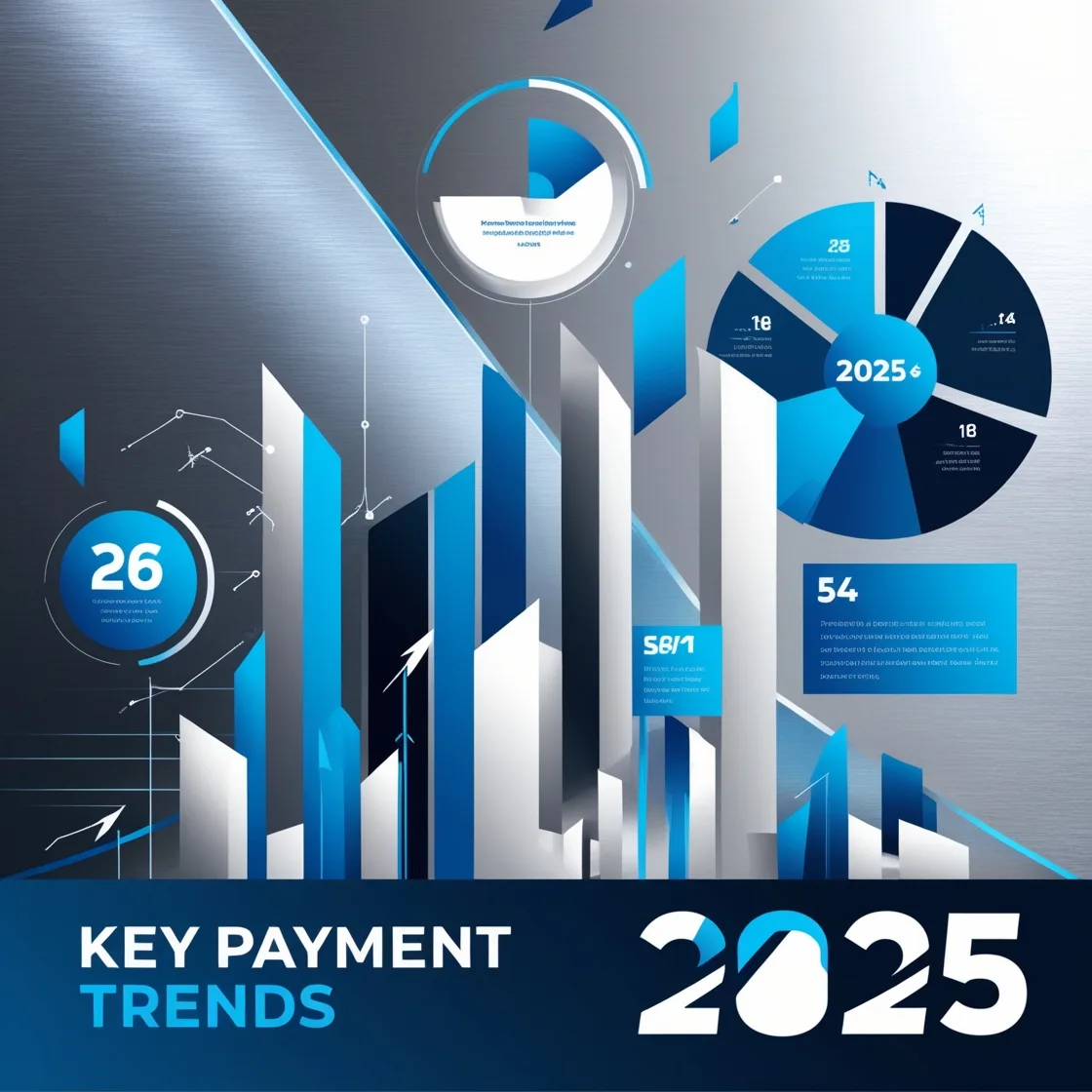The year 2025 is just around the corner, which means it’s time to find out where the payment industry will be heading when it arrives. Gbc Time’s review of the most significant fintech and payment trends of the next year.
Looking at the expected payment trends of online business 2025
Payment systems and fintech are not standing still, but are constantly evolving and bringing something new to the daily lives of ordinary people and businesses. To keep up with the changes and integrate them into your business processes, read Monoup’s media about payment systems. We look at the most topical issues of fintech and today we will discuss one of them.
Traditionally, we decided to dedicate the final article of the year to trends and innovations in the payment industry and discuss what we should expect very soon – in 2025.
Cryptocurrency
As one of the old-new trends, cryptocurrency is breaking into 2025 and will become a major trend for many products. At the same time, the future development of crypto in some countries looks, if not vague, then a bit unpredictable. The world is still divided into two camps: those who are all in favour of cryptocurrency and those who are strongly ‘against’ it. Europe has taken an almost middle ground on this issue and is not banning crypto (as it is already clear that it will be impossible to do so, although it would be very desirable), but is determined to regulate it to the maximum. The set of MiCA regulations, which has already made a lot of noise, is proof of that.
What will crypto look like in 2025?
Most of the usual fintech services will be considering adopting or actively adopting crypto. Some have not benefited much from regulation, like USDT, and some quite the opposite, like the creators of USDC – saw it as a big opportunity. Regulated and backed by banks or financial institutions, cryptocurrencies will penetrate people’s lives even faster and try to replace the usual non-transparent coins. Payment with crypto on the site is no longer an additional option, but a mandatory one, although iGaming is not talking about it. On the contrary, gaming projects are ready to favour crypto, but as long as the audience is more inclined to fiat – it is not possible to do it.
Artificial Intelligence
Throughout 2024, we have already seen a number of successful fintech products based on or utilising AI. Artificial intelligence is firmly entrenched not only in the minds of everyday users, but also in the banking and fintech industry. The most successful implementations of AI have been in the form of chatbots and as an anti-fraud toolkit. Fraud, in turn, can also be called a problem (well, not a trend) that is always around and measures to anticipate fraud are always relevant. Especially given that fraudsters, like bankers, are evolving their skills.
So, artificial intelligence has proven to be particularly useful in the fight against fraud due to its learnability and ability to process large data sets at a time. Whereas conventional monitoring and anti-fraud systems had to be manually adjusted after carefully studying the results of previous periods, AI can now learn on its own in real time and change its approaches just ‘on the fly’. This makes it possible to notice more suspicious activity and not to overlook so-called novelties from fraudsters in this direction.
Wallets and super apps
Electronic wallets, one might say, appeared and developed precisely thanks to the online gaming industry. It was here that the issue of anonymity and convenience of payments was always acute, and bank cards could not provide this.
Later, wallets became not only available to a narrow category of the population, but firmly entrenched in the minds of many. We all know Skrill, PayPal and other local versions of electronic wallets, for example Touch and Go in Malaysia or Alipay in China. Wallets are trying to get out of a narrow niche even more and are turning into so-called super apps. These are literally “super apps” that can lead to a number of different unrelated services. Thus, the wallet will offer not only payments on attracted sites, but also investment products, savings schemes, bonuses, lending and much more.
One example of such a development can be called the Kaspi company in Kazakhstan. The development of this fintech over the years of its work is truly impressive and the hypostasis in which the application is now located is truly a super app. Since most users don’t need other apps, Kaspi already has them. Many other wallets are aiming for the same result, and we will see a lot of movement in this direction in 2025.
Contactless payments and biometrics
Not just online! Offline payments are also striving for new heights, namely, they are working to simplify the contactless payment process. Payments with a physical credit card can already be called something outdated. Since this payment method is used less and less. Most banks and fintechs are also doing everything possible to ensure that their customers do not need to carry a card.
Among the most popular contactless payment methods in the world, QR codes, as well as Google Pay and Apple Pay, take the lead. But in addition to them, locally in different countries, their own payment methods are being developed, supported by banks and financial associations of the countries. For example, the much-talked about payment by palm in the Emirates. By combining palm scanning technology and the financial system, the developers have achieved a balance: since the veins of each person form a unique pattern on the palm, it is simply impossible to repeat it or deceive the system. This helps protect against fraud and confirm payments in the most effective way that cannot be disputed.
Paying with your face, smile, palm – all this is no longer a plot of a TV series about the future, it is the present in 2025.
Simple international payments
The most global trend of the coming year can safely be called the simplification of international flows of funds. Cooperation between economies is growing in the world, and therefore the need to quickly and efficiently exchange payments.
Wise has made significant steps in this direction by connecting directly to the SWIFT system. This will allow the payment system to manage its finances and make payments several times faster without the participation of correspondent banks. An unprecedented case, which has not gone unnoticed in the banking environment, clearly indicates a shift in power in the world of finance. Banks, remaining behind technological progress, have long existed due to their leading position in the financial hierarchy and the impossibility of its existence without them. But everything is changing and these changes have forced even regional payment solutions, such as SEPA, to think about speeding up and meeting the requirements of their users. Payments in 10 seconds promise to appear in the vastness of the Eurozone very soon in 2025 and significantly change the payment flows of Europeans. Although many banks have said that they do not have time to update their systems before the deadline (almost two thirds of all), from which we can assume that the development will be protracted.
Open banking has not left the top lines of financial publications for several years now; and next year we expect its further implementation in new geolocations and wider use, both by merchants and individual users. The United States and post-Soviet countries are taking serious steps in this direction right now.
To summarize, we note that the outgoing year was significant for the financial industry and was marked by the beginning of some of the trends mentioned today. And in 2025, we expect even more convenient, fast and efficient payments.
Read More: Open Banking for casino














